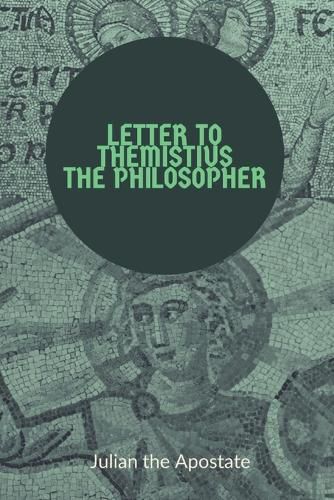Readings Newsletter
Become a Readings Member to make your shopping experience even easier.
Sign in or sign up for free!
You’re not far away from qualifying for FREE standard shipping within Australia
You’ve qualified for FREE standard shipping within Australia
The cart is loading…






This title is printed to order. This book may have been self-published. If so, we cannot guarantee the quality of the content. In the main most books will have gone through the editing process however some may not. We therefore suggest that you be aware of this before ordering this book. If in doubt check either the author or publisher’s details as we are unable to accept any returns unless they are faulty. Please contact us if you have any questions.
On the strength of his Aristotelian "Paraphrases" Themistius may be called a scholar, though hardly a philosopher as he himself claimed. Technically he was a Sophist: that is to say he gave public lectures (??????????), wrote exercises after the Sophistic pattern and went on embassies, which were entrusted to him solely on account of his persuasive charm. But he insisted that he was no Sophist, because he took no fees1 and styled himself a practical philosopher.2 He was indifferent to the Neo-Platonic philosophy,3 and, since Constantius made him a Senator, he cannot have betrayed any zeal for the Pagan religion. From Julian's Pagan restoration he seems to have held aloof, and, though Julian had been his pupil, probably at Nicomedia, he did not appoint him to any office. Under the Christian Emperor Theodosius he held a prefecture. There is no evidence for a positive coolness, such as Zeller4 assumes, between Themistius and Julian, and we know too little of their relations to assert with some critics that the respectful tone of this letter is ironical.5It was probably written after Julian had become Emperor, though there is nothing in it that would not suit an earlier date; it is sometimes assigned to 355 when Julian was still Caesar. The quotations from Aristotle are appropriately addressed to Themistius as an Aristotelian commentator.
$9.00 standard shipping within Australia
FREE standard shipping within Australia for orders over $100.00
Express & International shipping calculated at checkout
This title is printed to order. This book may have been self-published. If so, we cannot guarantee the quality of the content. In the main most books will have gone through the editing process however some may not. We therefore suggest that you be aware of this before ordering this book. If in doubt check either the author or publisher’s details as we are unable to accept any returns unless they are faulty. Please contact us if you have any questions.
On the strength of his Aristotelian "Paraphrases" Themistius may be called a scholar, though hardly a philosopher as he himself claimed. Technically he was a Sophist: that is to say he gave public lectures (??????????), wrote exercises after the Sophistic pattern and went on embassies, which were entrusted to him solely on account of his persuasive charm. But he insisted that he was no Sophist, because he took no fees1 and styled himself a practical philosopher.2 He was indifferent to the Neo-Platonic philosophy,3 and, since Constantius made him a Senator, he cannot have betrayed any zeal for the Pagan religion. From Julian's Pagan restoration he seems to have held aloof, and, though Julian had been his pupil, probably at Nicomedia, he did not appoint him to any office. Under the Christian Emperor Theodosius he held a prefecture. There is no evidence for a positive coolness, such as Zeller4 assumes, between Themistius and Julian, and we know too little of their relations to assert with some critics that the respectful tone of this letter is ironical.5It was probably written after Julian had become Emperor, though there is nothing in it that would not suit an earlier date; it is sometimes assigned to 355 when Julian was still Caesar. The quotations from Aristotle are appropriately addressed to Themistius as an Aristotelian commentator.